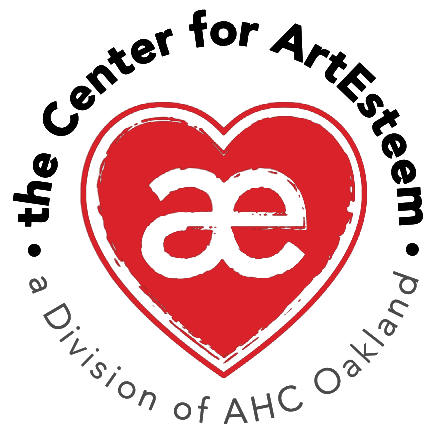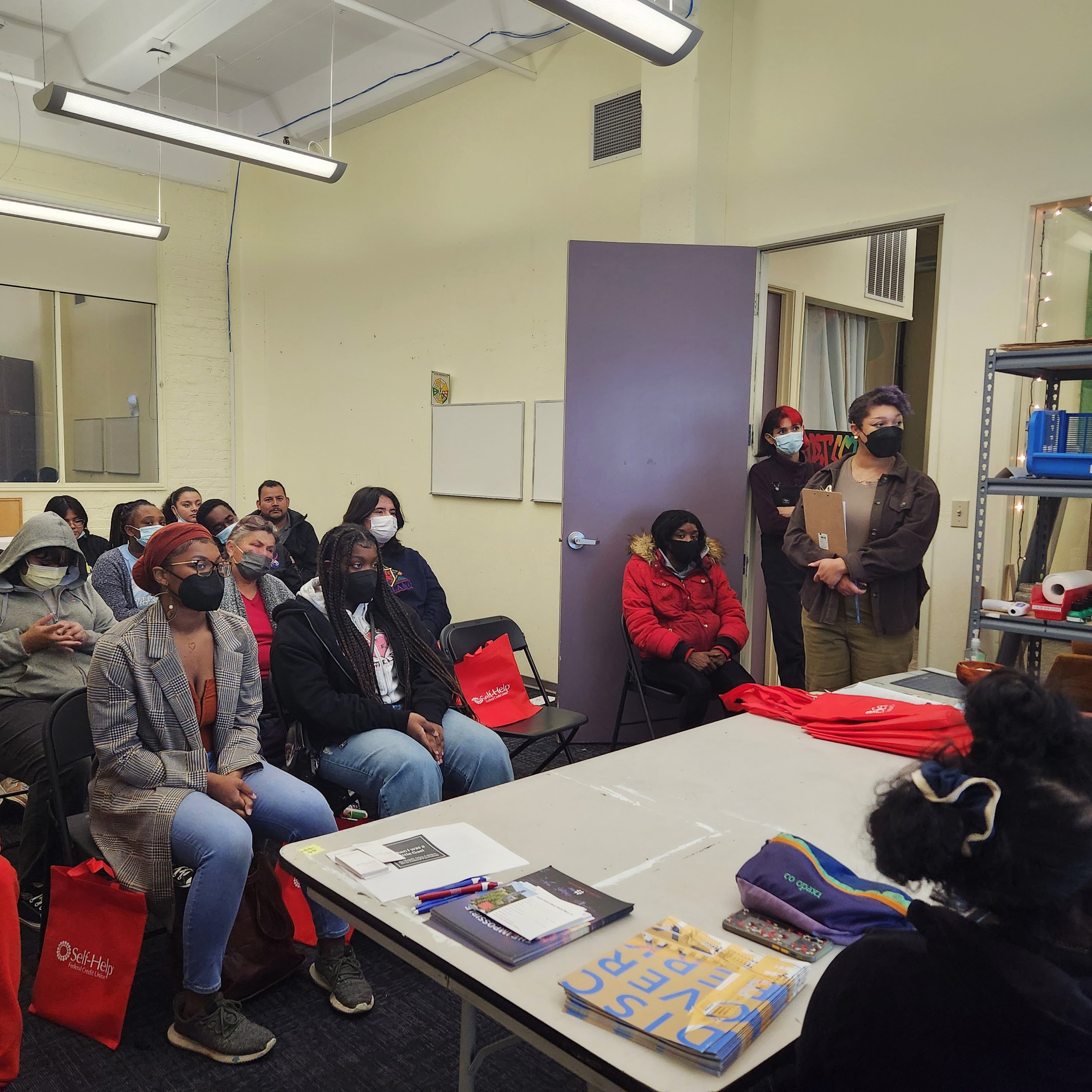
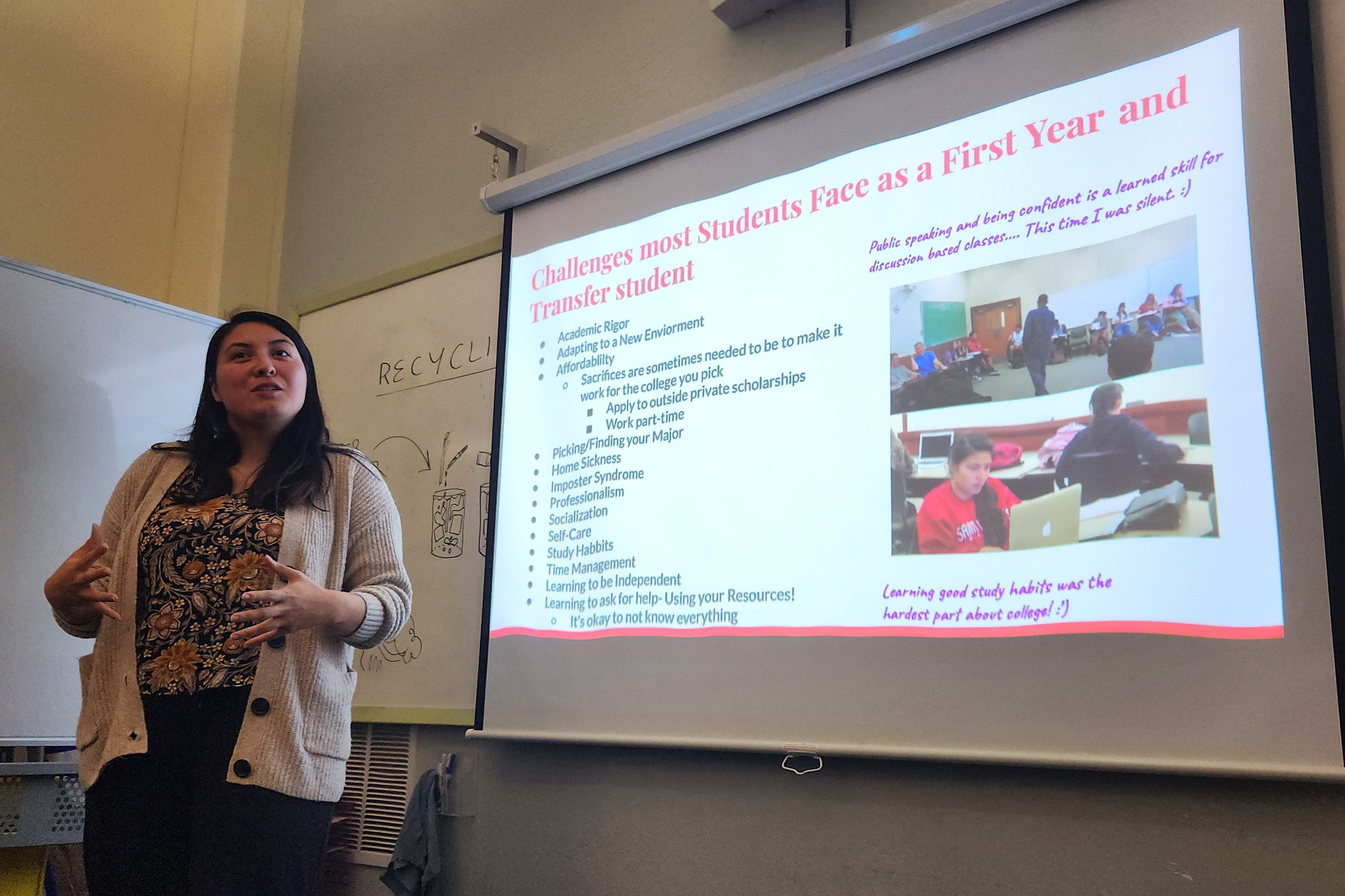
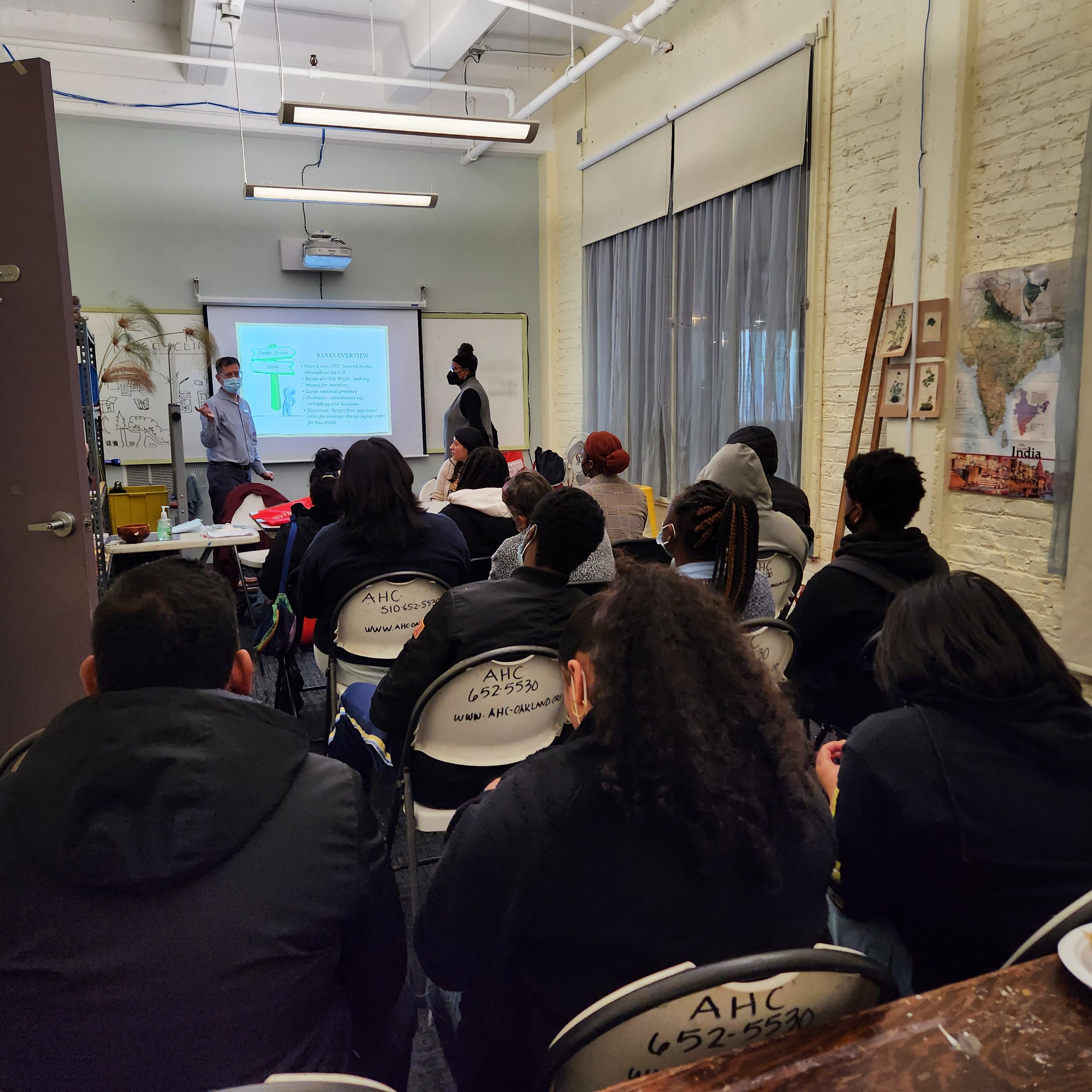
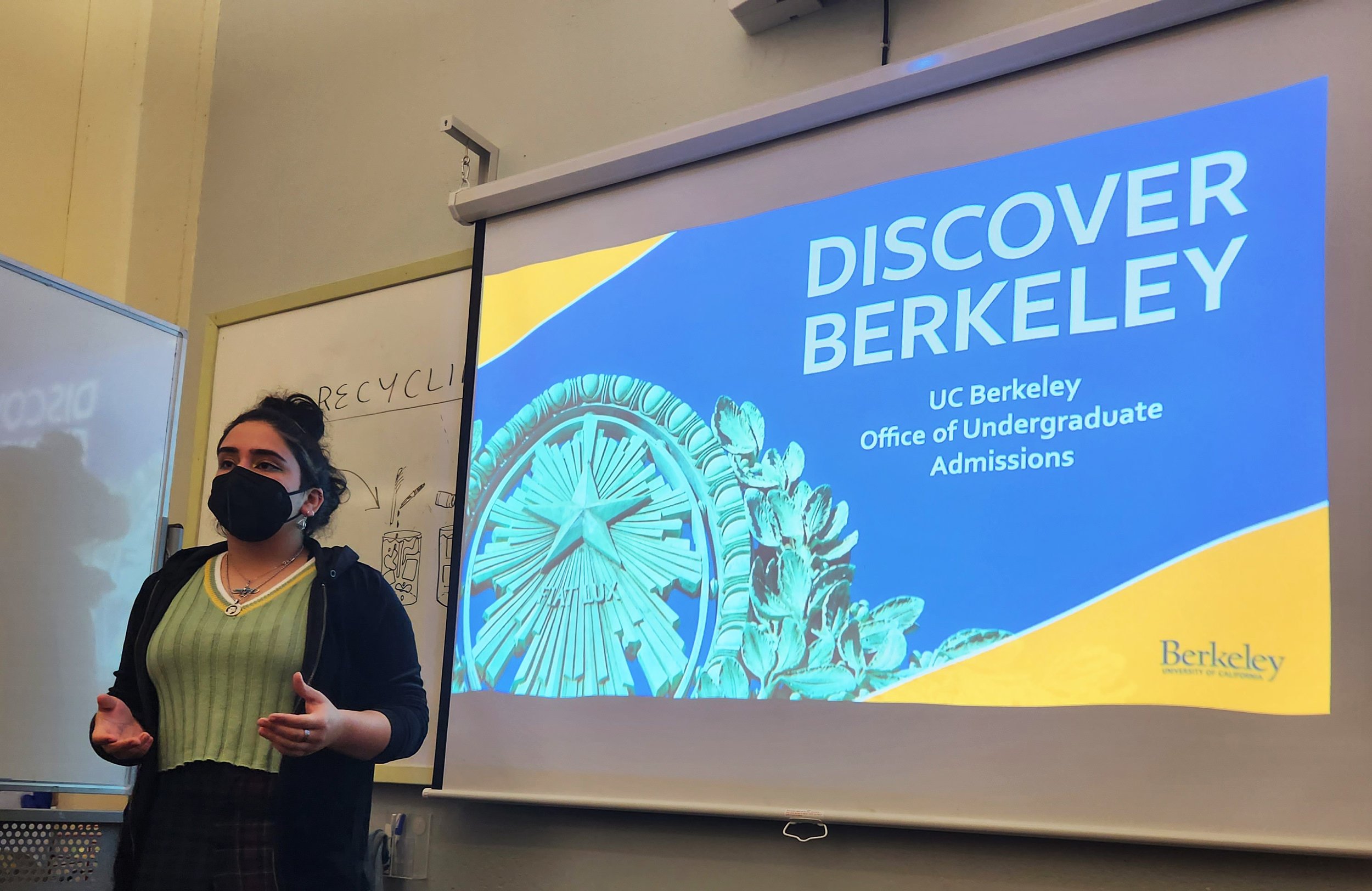
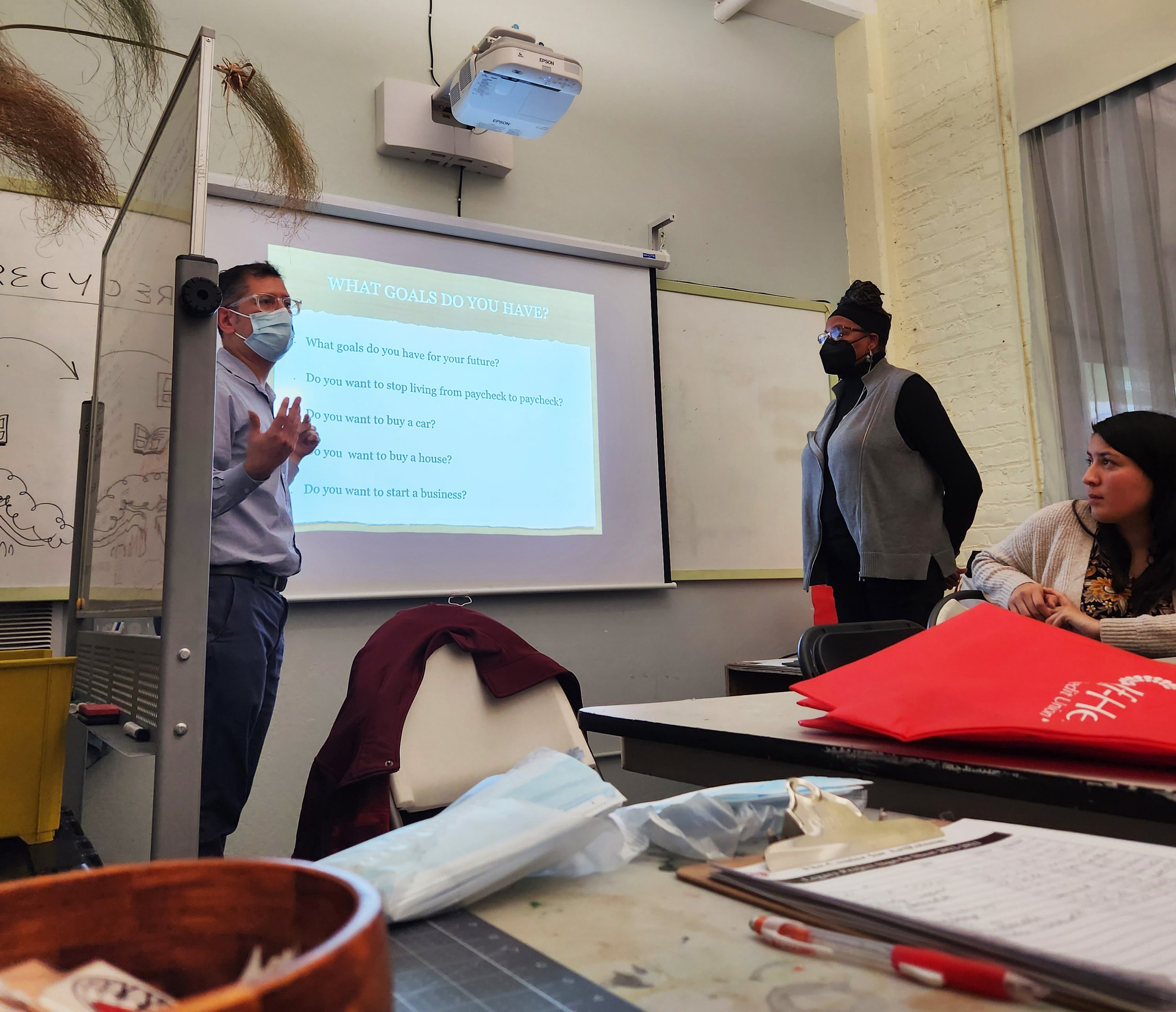
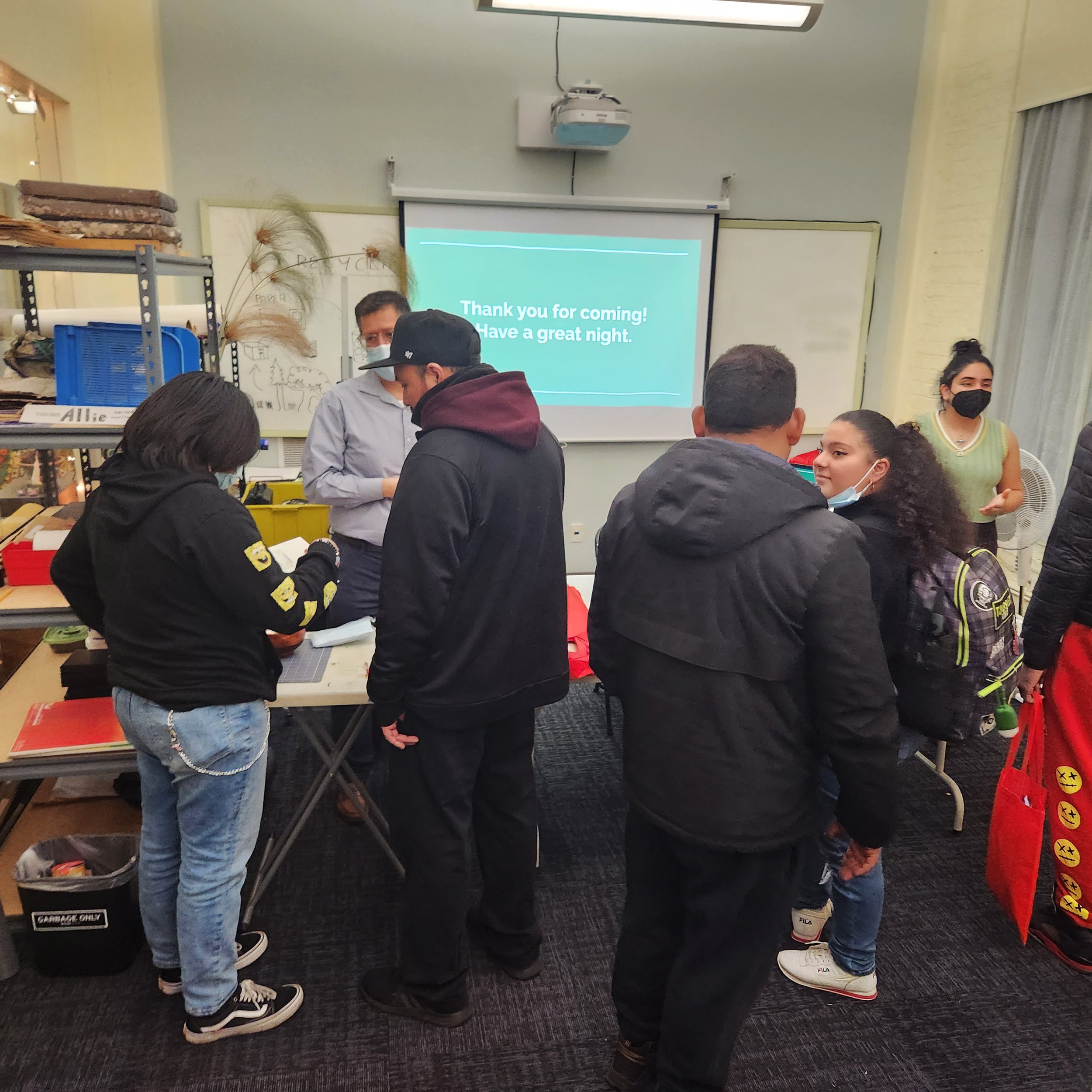
The Center for ArtEsteem is dedicated to building creative and sustainable communities through artistic empowerment and youth development. One way the agency fosters autonomy and leadership in youth is by further developing the skills necessary for navigating young adulthood. On December 8th, the Legacy Project after school program hosted a Higher Education and Financial Literacy panel for students and their families. Participants met with professionals in their fields to receive tools for managing personal finances and prepare for college readiness.
Dante Rojas, the Assistant Branch Manager at Self-Help Federal Credit Union, started the evening event with a crash course on money management. The audience learned about building credit, budgeting, and the differences between CUs and banks. Fifteen percent of Oakland families do not have a bank account, which is twice the national average. Legacy students received their first stipend check for the program. Encouraging our high school students early on to create a bank account not only teaches them to save their money but also the important responsibility of managing their finances.
Afterwards, the audience received presentations from Senior Admissions Counselor Magaly Arias-Lobatos from St. Mary’s College, as well as Assistant Director LGBTQ+ Community Liaison Naseem Salim from University of California Berkeley. They covered the topics of private-versus-public school differences, college application processes, and the relevancy of Legacy Project to the campus’ mission. As representatives of their alma mater, our college guest speakers were also able to share their personal insight for first year students. including financial aid opportunities and struggles, finding community through affinity groups, and campus resources to take advantage of. Along the intersections of race, class, disability, citizenship, and gender, both colleges provided financial and academic support for students with marginalized identities.
Our guest speakers held bilingual presentations to accommodate our Spanish-speaking families, and were able to answer their questions during the post-tabling session. Students were excited to learn that they could receive letters of recommendation from the Legacy Project leadership team when applying to colleges in the future. Having representatives who reflect the identities of our students is important for encouraging them to take up space in these institutions that have historically shut them out.
